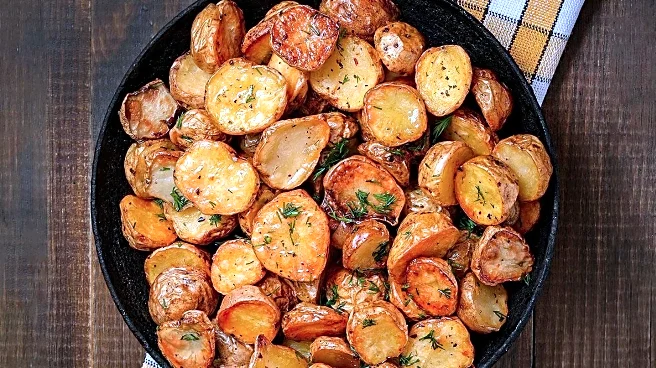What is the story about?
What's Happening?
CNET has introduced a quick and efficient method for preparing baked potatoes using an air fryer, significantly reducing the traditional cooking time. The method involves initially microwaving a russet potato for eight to ten minutes until it is fork-tender. Following this, the potato is air-fried for a few minutes to achieve a crispy skin and soft interior. This technique offers a practical solution for those seeking a quick side dish without the lengthy wait associated with oven-baked potatoes. The air fryer method is presented as a versatile option suitable for both weeknight dinners and larger gatherings.
Why It's Important?
The introduction of this air fryer method for baked potatoes reflects a broader trend towards convenience in meal preparation, catering to busy individuals and families. By reducing cooking time, this method aligns with the growing demand for quick and easy meal solutions without compromising on quality. The use of air fryers, which are becoming increasingly popular in American households, highlights a shift towards more efficient cooking technologies. This trend could influence consumer behavior, potentially increasing the demand for air fryers and similar kitchen appliances.
What's Next?
As more people adopt this quick cooking method, there may be a rise in the popularity of air fryers, prompting manufacturers to innovate and improve these appliances. Additionally, culinary enthusiasts might explore further applications of air fryers for other traditional dishes, expanding the repertoire of quick meal solutions. This could lead to a broader acceptance and integration of air fryers in everyday cooking routines, influencing kitchen appliance markets and consumer preferences.
Beyond the Headlines
The adoption of air fryers for traditional recipes like baked potatoes may also have environmental implications. By reducing cooking time and energy consumption compared to conventional ovens, air fryers could contribute to more sustainable cooking practices. This shift might encourage further exploration of energy-efficient cooking methods, aligning with broader environmental goals.
















